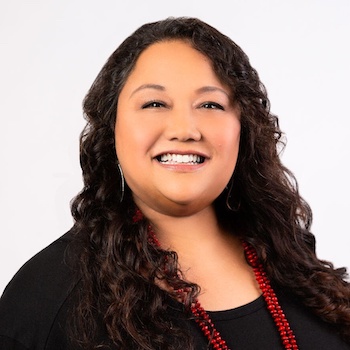Why reporting on impact is our most important job now

Mihajlo Maricic / iStock
This commentary was adapted from an edition of the author’s newsletter.
It is Sunday evening. I sit at a United gate in the Newark airport, waiting for my plane home. Next to me is a woman wearing a stunning red dress. I start to compliment her, but I stop when I realize she’s speaking to someone on her earbuds.
“Trump just pulled us out of WHO,” she says urgently. She’s dismayed. But whomever she’s talking to doesn’t understand.
“The World Health Organization?” she asks. “They research diseases … when something happens globally …” She struggles. It’s not getting through. She’s reaching for her own explanation of what WHO does and why Trump’s action matters.
Finally, kindly but with exasperation, she says, “People are going to die.”
And suddenly, a frustration about journalism that I’ve been grappling with, and a solution, snap into place.
It’s no surprise that much of mainstream journalism is failing us. It’s failing the public, and it’s failing its dedicated practitioners in myriad ways.
Part of the trouble (and I am hardly the first person to point this out) is that, for decades, reporters have been trained to do two things:
- Report “what happened” — who, what, when, where, why.
- Be a blank slate, as purportedly objective and neutral as possible to allow an informed, educated citizenry to decide for themselves what to do with the information they’re provided.
But obviously, the world has changed. This year, it’s changing by the minute.
We no longer need journalists to simply tell us what happened. Information is everywhere. Furthermore, this doesn’t even begin to touch the difficulty of reporting honestly “what happened” when we are bombarded with mis- and disinformation.
What the job of a good journalist is now is to help people understand the impact of news and events on individuals, communities and the planet.
We need to train our gaze 180 degrees away from where we as journalists have been brainwashed into putting it and focus instead where it will make the most difference. It’s depth, context, understanding and often history that we need now.
As the brilliant news critic Melanie Sill asserted last month, the New York Times’ bias toward detachment leaves “its readers as spectators to battles that engage us all as citizens and as human beings.” That bias, she went on, keeps “the paper from asking and answering simple questions — do federal workers have 1st Amendment rights, or privacy protections? What services and protections of the federal government will be lost, and who will suffer, from this chaos?”
We need to plumb meaning. We need honest, full representation of those affected by the news.
After all, history is told by the victors. But we need every voice. When the voices change, our understanding and perception of complex issues changes as well. And this is crucial: So does our level of caring and empathy. When policies and politics are reported without the context of human impact, we don’t “see” the people at the blunt end of leaving the WHO, of canceling federal grants, of firing air traffic controllers and epidemic investigators, of rising inflation and structural inequality.
But when we see these things through the lens of people’s lives, we have a wholly different experience. We respond with heart, which is the foundation of action.
The crucial ripple effects of our work
A random overheard conversation about the World Health Organization shows how important it is that we do our jobs well — that is, that we help the average citizen understand and be able to explain to others what actually matters. My neighbor struggled to explain that WHO, founded after World War II as a United Nations Agency, exists to ensure that more than a billion people around the world have access to health care. WHO is designed to protect multitudes from health emergencies like the spread of cholera, Ebola and the measles. Their mission statement expressly says they “serve the vulnerable.”
Indeed, without WHO, as my anonymous friend said, “People will die.”
When we as citizens do not understand the impacts of actions, we do not organize to change things. We are easy to manipulate. We are, effectively, blinded.
But when we do understand, we act. According to a 2016 Pew study, 65% of people who closely follow local news said they “know how to make a difference.” But only 31% of people who don’t follow local news said the same.
This, then, is a journalist’s most important role, now and in the future: to research thoroughly and to report on impact and meaning. This means good, nuanced storytelling about specific people, places and communities has never been more critical.
If you’re leading a newsroom, a station, a news podcast, or publishing a newsletter, figuring out the news agenda has never been more important. It’s also never been harder.
Start and stay with impact. The audience you’re producing or writing for and about must be your North Star.
What people really want from us
Here’s what happens when we fail at this: Marginalized communities, in particular, avoid the news. Shirish Kulkarni and a team from Media Cymru’s News for All Project spent eight months studying why and looking for potential solutions. “There is not a single user asking for more, cheaper content,” Kulkarni writes. “What they want from us is more of the uniquely human characteristics of connection, collaboration and care.” (An aside for talent and show producers: This is why hostiness matters so much.)
Kulkarni quotes Abdi Yusuf, a community leader in Cardiff, Wales, about news avoidance: “Would you sit through something that was dehumanising you, not representing you correctly, misrepresenting you? You wouldn’t, you would disengage.”
It’s one thing to declare that the highest purpose of a public broadcaster should be to report on human impact, accurately and with nuance and depth. It’s another thing to make sure it happens, especially now as stations fear funding losses and grapple with attacks on the First Amendment and on the very existence of public broadcasting itself. Add to these threats a wholly inadequate understanding of false equivalence — far too much “both sides-ism.”
In reality, leaders can’t simply tell newsrooms that reporting on impact is their mission now. In reality, impact is a lens we choose to look through — or not — when assigning, reporting and editing every story and every public affairs show conversation.
Frankly, it’s fast and easy to churn out news spots and even features with headlines taken from press releases and official sources. It’s far harder and more challenging to center human narratives and to provide our audiences the kinds of information they need to make informed decisions — indeed, to save democracy.
But that’s the job public broadcasting was founded for. Isn’t it?
A public radio veteran, Elaine Appleton Grant provides host coaching and strategic editorial consulting services to public media and mission-driven organizations. She writes Sound Judgment, a newsletter about the crafts of journalism and storytelling.






